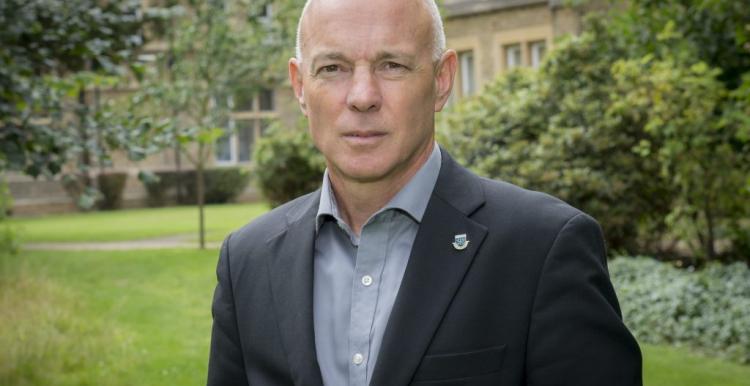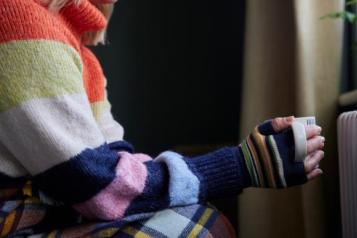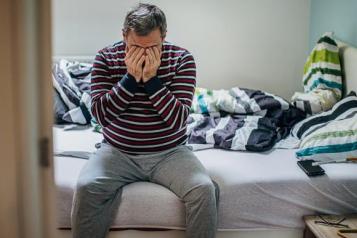Right place - right time

Recently, I heard a radio presenter talking about the great life he had had, which had brought many opportunities to work with top celebrities and to gain many memorable experiences. It caused me to think that - often through reasons of pure good fortune - I have also had a great career, but in my chosen field of sport and exercise science.
Brought up in Devon, I was a rugby player and athlete of modest ability, but in 1980 I found myself starting a sport and exercise science degree at the “hothouse” of sport that is Loughborough University. On my first day, I bumped into the legendary Seb (now Lord) Coe, who only weeks before had been on the front and back pages following his epic duels with Steve Ovett at the Moscow Olympics. Finding it hard to break into any of the sports teams at Loughborough, I spent the next 3 years immersing myself in the world of sport and exercise science research and consequently was offered the chance to stay at Loughborough after my degree concluded, as part of a small group to conduct sports science research in the highly regarded Loughborough sports science research laboratory. Most of my work focussed on the impact of nutrition on endurance running, funded by the then sponsors of the London Marathon, Mars. I completed the first of my twenty London Marathon’s in 1984, the last of which were as “running partner” for various celebrities that included ITV’s Susana Reid and Radio 1’s Greg James. Running has remained a passion for the next 40 years, and I still compete, albeit quite slowly, in local races around Shropshire and the West Midlands. Authoring six books on running and sport, and a range of media work, have also opened avenues and opportunities that I could never have dreamt of as a schoolboy in Devon in the 1970’s.
But my biggest “lucky break” came as my research funding was ending, and I was wondering what to do next. On a life-changing day, the then England football manager, Bobby Robson, visited the research lab saying that he wanted to find a sports scientist to work at the FA’s School of Excellence that he was establishing at Lilleshall National Sports Centre in Shropshire. Targeting 15- and 16-year-old boys, the FA School had the aim of developing international players of the future. I jumped at the chance, got the role, moved to Shropshire, and spent 20 wonderful years heading the sports science and rehabilitation centre at Lilleshall, initially for the FA, then as an independent business. Highlights included being part of Bobby Robson’s support staff at the Italia 90 World Cup, and working with many different sports and teams, such as the England Cricket, GB Rugby League and GB Hockey teams, and getting to meet superstars such as Ian Botham, Paul Gascoigne and Kelly Holmes.
But all good things come to an end, and in 2004 I moved with my wife (former Olympic hockey player Caroline) and our two daughters, to Chesham in Buckinghamshire, taking up a role as Director of Sports Science for pharma giant GSK, who at that time owned the Lucozade Sport brand. After five years with GSK, I was offered the chance to enter academia, and much to my surprise (and probably the surprise of others as well!), I became a Professor of Applied Sports Science at the University of Bedfordshire, based at the Polhill Campus in Beford, where I stayed for the next five years. After Bedfordshire, I gradually working my way up through the “ranks” to become Deputy Vice-Chancellor at Buckinghamshire New University, via St Marys University at Twickenham. Most rewarding was the chance to teach, mentor and support young people as they progressed through their studies and developed their lives, many of whom still keep in touch with me.
Alongside the “day job”, I was fortunate to have Board level roles on UK Anti-Doping, (the body responsible for the drug testing of UK sports people), and chaired the Board of the British Handball Association at the London 2012 Olympics. Currently I Chair the Board of the National Football Museum in Manchester, so in many ways my “football journey”, which began at Lilleshall almost 40 years ago, has now gone full circle.
I retired from full-time work at the end of 2023, and with daughters having flown the nest, Caroline and I decided to move back to Shropshire, where I have been delighted and honoured to accept the role of Co-Chair of Healthwatch Telford and Wrekin.
Alongside book writing, I have frequently found myself on radio and TV talking about health and fitness, and various matters relating to sport. So, over the next few weeks and months, I am planning to write a series of blog posts which discuss the important role that staying healthy and keeping active can play for each of us individuals, and collectively for communities. I hope that these will stimulate some interest and thought, and I am very much looking forward to sharing my thoughts and views, all of which will of course be my own!
John Brewer
Professor of Applied Sports Science.
Co-Chair, Healthwatch Telford and Wrekin.


